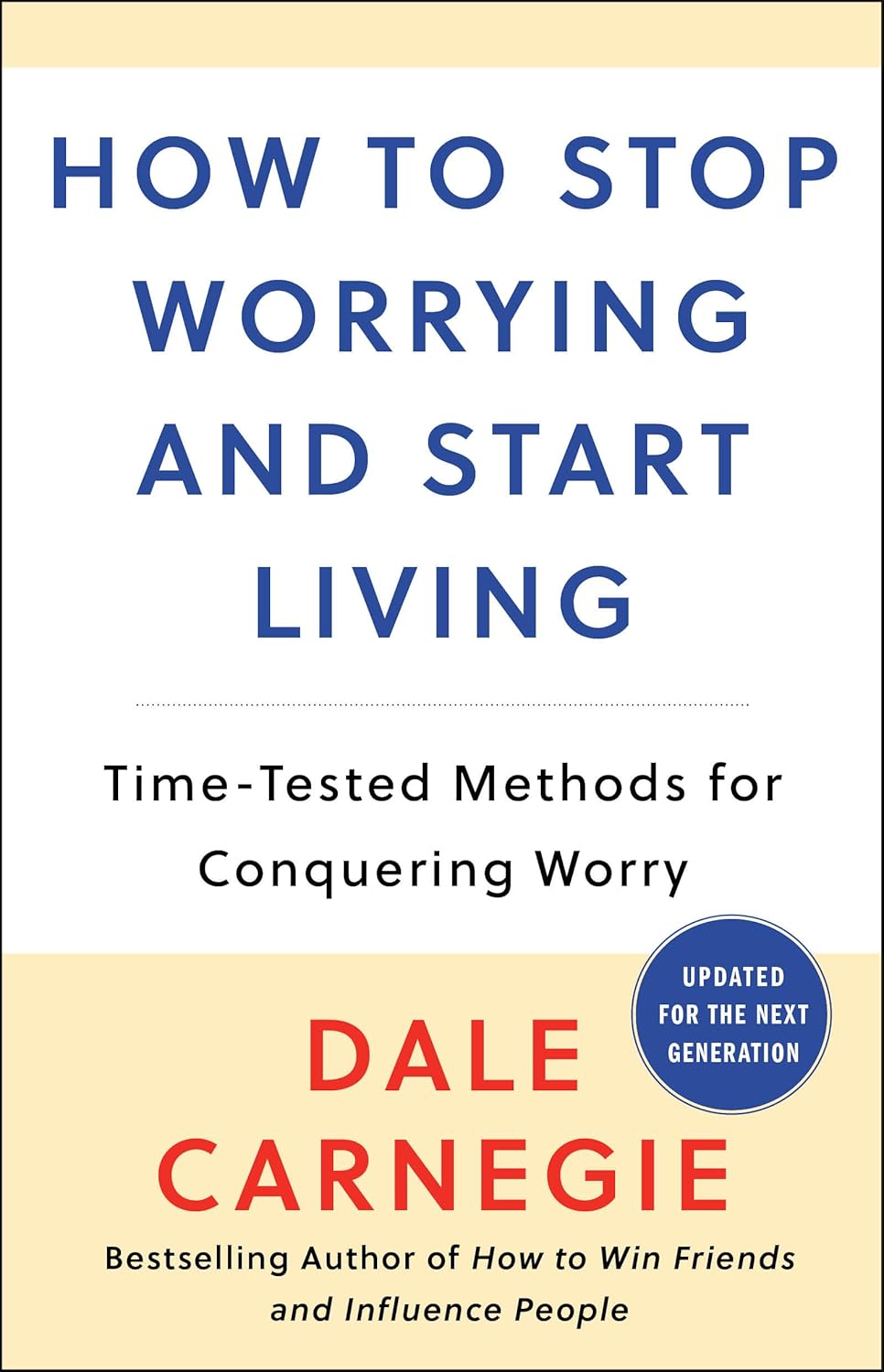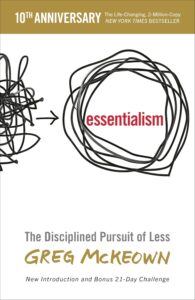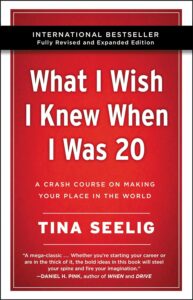Applied consistently these lessons will reduce stress and improve life. Throughout How to Stop Worrying and Start Living, by Dale Carnegie, I realized that I use many of these methods to de-stress and focus, my favorite lesson from the whole book was actually the first one:
Live in day-tight compartments
Sir William Osler
There are some amazing portions of this book and some not so great portions. Carnegie is a master of giving lessons through real-life stories (my favorite way to learn). Overall I suggest picking up this book and skipping these parts, if the following parts were excluded I may have given this book a 10/10:
- Skip Ch 21, 22, 27, 28
- Skip all of Part 8 except the last two stories
The Book’s Guidelines
- Facts You Should Know About Worry
- Rule 1: If you want to avoid worry, do what Sir William Osler did: live in “day-tight compartments.” Don’t stew about the future. Just live each day until bed-time.
- Rule 2: The next time trouble-with a capital T- backs you up in a corner, try the magic formula of Willis H. Carrier
- Ask yourself, “What is the worst that can possibly happen if I can’t solve my problem?”
- Prepare yourself mentally to accept the worst-if necessary.
- Then calmly try to improve the worst-which you have already mentally agreed to accept.
- Rule 3: Remind yourself of the exorbitant price you can pay for worry in terms of your health. “Those who do not know how to fight worry die young.”
- Basic Techniques in Analyzing Worry
- Rule 1: Get the facts. Remember that Dean Hawkes of Columbia University said that “half the worry in the world is caused by people trying to make decisions before they have sufficient knowledge on which to base a decision.”
- Rule 2: After carefully weighing all the facts, come to a decision.
- Rule 3: Once a decision is carefully reached, act! Get busy carrying out your decision-and dismiss all anxiety about the outcome.
- Rule 4: When you, or any of your associates, are tempted to worry about a problem, write out, and answer the following questions:
- What is the problem?
- What is the cause of the problem?
- What are all possible solutions?
- What is the best solution?
- How to Break the Worry Habit Before it Breaks You
- Rule 1: Crowd worries out of your mind by keeping busy. Plenty of action is one of the best therapies ever devised for curing “wibber gibbers.”
- Rule 2: Don’t fuss about trifles. Don’t permit little things-the mere termites of life-to ruin your happiness.
- Rule 3: Use the law of averages to outlaw your worries. Ask yourself: “What are the odds against this thing’s happening at all?”
- Rule 4: Co-operate with the inevitable. If you know a circumstance is beyond your power to change or revise, say to yourself: “it is so; it cannot be otherwise.”
- Rule 5: Put a “stop-loss” order on your worries. Decide just how much anxiety a thing may be worth-and refuse to give it anymore.
- Rule 6: Let the past bury its dead. Don’t saw sawdust
- Seven Ways to Cultivate a Mental Attitude That Will Bring You Peace and Happiness
- Rule 1: Let’s fill our minds with thoughts of peace, courage, health, and hope, for “our life is what our thoughts make it.”
- Rule 2: Let’s never try to get even with our enemies, because if we do we will hurt ourselves far more than we hurt them. Let’s do as General Eisenhower does: let’s never waste a minute thinking about people we don’t like.
- Rule 3 (three parts):
- Instead of worrying about ingratitude, let’s expect it. Let’s remember that Jesus healed ten lepers in one day-and only one thanked him. Why should we expect more gratitude than Jesus got?
- Let’s remember that the only way to find happiness is not to expect gratitude-but to give for the joy of giving.
- Let’s remember that gratitude is a “cultivated” trait; so if we want our children to be grateful, we must train them to be grateful.
- Rule 4: Count your blessings-not your troubles!
- Rule 5: Let’s not imitate others. Let’s find ourselves and be ourselves, for “envy is ignorance” and “imitation is suicide.”
- Rule 6: When fate hands us a lemon, let’s try to make lemonade.
- Rule 7: Let’s forget our own unhappiness-by trying to create a little happiness for others. “When you are good to others, you are best to yourself.”
- How to Keep from Worrying About Criticism
- Unjust criticism is often a disguised compliment. It often means that you have aroused jealousy and envy. Remember that no one ever kicks a dead dog.
- **I have not put in the other two rules because I disagree with them**
- Six Ways to Prevent Fatigue and Worry and Keep Your Energy and Spirits High
- Rule 1: Rest before you get tired.
- Rule 2: Learn to relax at work.
- Rule 3: Learn to relax at home.
- Rule 4: Apply these four good working habits:
- Clear your desk of all papers except those relating to the immediate problem at hand
- Do things in the order of their importance.
- When you face a problem, solve it then and there if you have the facts necessary to make a decision.
- Learn to organize, deputize, and supervise.
- Rule 5: To prevent worry and fatigue, put enthusiasm into your work
- Rule 6: **I have not put in the final rule because I disagree with it.”
Other Lessons Learned
- Smile and make other people smile
- Acknowledge the evil inside of ourselves, if we cannot recognize it we cannot defeat it.
Quality Quotes
- So let’s be content to live the only time we can possibly live: from now until bedtime.
- “The secret of being miserable is to have the leisure to bother about whether you are happy or not.” – George Bernard Shaw
- De minimise non curat lex-“the law does not concern itself with trifles.” And neither should the worrier-if he wants peace of mind.
- I shall always remember that you taught me to smile and to take whatever comes, like a man.
- I gave myself a good talking to. I said, ‘Look here! So you are blown up. So what! You will never know the difference! It will be an easy way to die.’
- A man doesn’t have the time to spend half of his life in quarrels.
- Don’t try to saw sawdust.
- “We seldom think of what we have but always of what we lack.” – Schopenhauer
- Just for today, I will be unafraid, especially I will not be afraid to be happy, to enjoy what is beautiful, to love, and to believe that lose I love, love me.
- Nietzsche’s formula for the superior man was “not only to bear up under necessity but to love it.”




